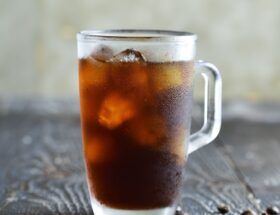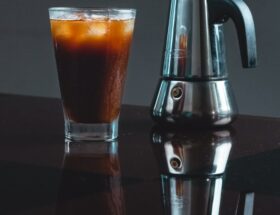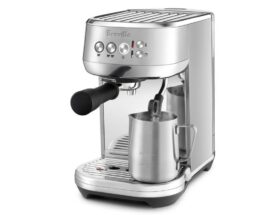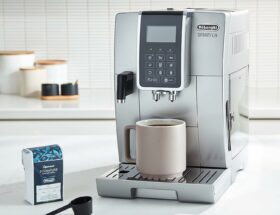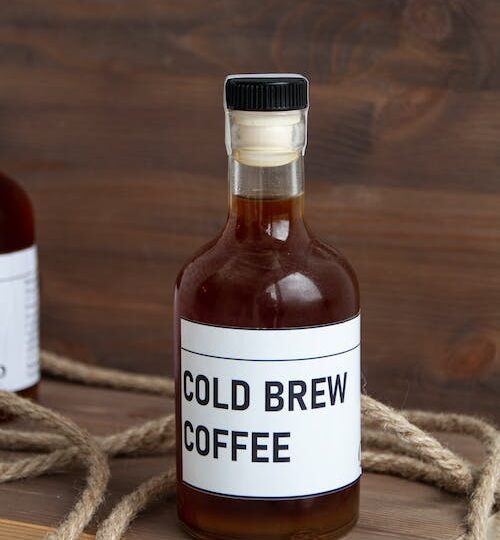
Is Cold Brew Stronger Than Regular Coffee?
Welcome to this blog post, where we’ll be diving into the world of coffee and exploring the age-old question: Is Cold Brew stronger than regular coffee? If you’re a coffee enthusiast like me, you’ve probably wondered about the differences between these two popular caffeinated beverages.
As we sip our morning brews, let’s uncover the secrets behind what makes Cold Brew unique and whether it packs a stronger punch than regular coffee. But first, did you know that coffee is the second most traded commodity in the world after oil? That’s right, billions of cups of coffee are consumed globally each day, fueling our productivity and passion for this beloved beverage.
Table of Contents
- Is Cold Brew Stronger Than Regular Coffee?
- Frequently Asked Questions
- 1. Is cold brew stronger than regular coffee?
- 2. How is cold brew different from regular coffee?
- 3. Does cold brew have more caffeine?
- 4. Is cold brew healthier than regular coffee?
- 5. Can I heat up cold brew to make it hot?
- 6. Does cold brew taste better than regular coffee?
- 7. Which one should I choose: cold brew or regular coffee?
- 8. Can I make cold brew at home?
- In Conclusion
Is Cold Brew Stronger Than Regular Coffee?
Understanding the Strength of Cold Brew
When it comes to coffee, one of the first things that come to mind is its strength. But what exactly does it mean for a coffee to be strong? Is it about the caffeine content, the flavor, or both? In the case of cold brew, its strength can be attributed to its caffeine concentration.
Caffeine Extraction in Cold Brew
Unlike regular coffee brewing methods that involve hot water, cold brew is made by steeping coffee grounds in cold or room temperature water for an extended period, usually around 12-24 hours. This slow extraction process allows for a higher caffeine concentration as compared to traditional brewing methods.
The Difference in Caffeine Content
Due to the longer extraction time, cold brew generally contains more caffeine per ounce than regular coffee. This means that a standard serving of cold brew typically packs a greater caffeine punch than a cup of hot coffee of the same size. So, if you’re in need of a strong caffeine boost, cold brew might be your go-to choice.
Flavor Profile and Perception of Strength
However, it’s important to note that strength isn’t solely determined by caffeine content. Regular coffee brewed using hot water often has a bolder and more intense flavor profile, which can give it a perceived sense of strength, even if it doesn’t have as much caffeine as cold brew. The preference for strength in coffee can vary from person to person, with some seeking a robust flavor experience while others prioritize caffeine content.
Factors Influencing Strength
Strength in coffee isn’t solely limited to the brewing method. Various factors can influence the perceived strength of a cup of coffee, including the coffee bean variety, roast level, grind size, and brewing ratio. These factors can impact the overall intensity and flavor of the coffee, regardless of whether it’s cold brew or regular coffee.
Why Choose Cold Brew?
So, if cold brew is stronger in terms of caffeine content, why should you choose it over regular coffee? The answer lies in personal preference and the desired coffee experience. Cold brew offers a smooth and less acidic flavor profile, often appreciated by those with a sensitive stomach or who prefer a milder coffee taste. It can also be a refreshing option, especially during the hot summer months.

Frequently Asked Questions
1. Is cold brew stronger than regular coffee?
Yes, cold brew is typically stronger than regular coffee. The brewing process of cold brew extracts more caffeine and flavors from the coffee grounds, resulting in a stronger and more concentrated coffee.
2. How is cold brew different from regular coffee?
Cold brew is different from regular coffee in terms of brewing method and taste. While regular coffee is brewed with hot water, cold brew is made by steeping coffee grounds in cold or room temperature water for an extended period. This slow extraction process gives cold brew a smoother and less acidic taste compared to regular coffee.
3. Does cold brew have more caffeine?
Yes, cold brew usually has more caffeine than regular coffee. Since cold brew is brewed with a higher coffee-to-water ratio and a longer brewing time, it extracts a higher concentration of caffeine from the coffee grounds.
4. Is cold brew healthier than regular coffee?
Cold brew and regular coffee have similar health benefits, such as antioxidant properties and potential protective effects against certain diseases. However, the perceived healthiness may differ based on individual preferences and dietary considerations, such as caffeine sensitivity or acidity tolerance.
5. Can I heat up cold brew to make it hot?
Absolutely! You can heat up cold brew to make it hot. While cold brew is typically served over ice, you can warm it up by heating it in the microwave or on the stove. Heating cold brew will not alter its flavor significantly, making it a versatile option for both hot and cold coffee beverages.
6. Does cold brew taste better than regular coffee?
The taste preference between cold brew and regular coffee is subjective and varies among individuals. Cold brew is known for its smooth and mellow flavor with lower acidity, which appeals to those seeking a less bitter coffee experience. However, some people may still prefer the bold and robust flavor profile of regular coffee.
7. Which one should I choose: cold brew or regular coffee?
The choice between cold brew and regular coffee depends on your personal preferences and desired coffee experience. If you enjoy a smooth, less acidic taste with potentially higher caffeine content, cold brew might be the perfect choice for you. On the other hand, if you prefer a stronger, bolder flavor, regular coffee might be more suitable. It’s worth trying both to see which one suits your palate best.
8. Can I make cold brew at home?
Absolutely! Making cold brew at home is relatively simple. All you need is coarsely ground coffee, water, a container, and time for steeping. There are various methods and recipes available online that can guide you through the process. Experimenting and finding your preferred ratio of coffee to water and steeping time can result in a delicious homemade cold brew.
In Conclusion
Cold brew and regular coffee have their own unique strengths and characteristics. While cold brew boasts a higher caffeine concentration, regular coffee offers a bolder flavor. Ultimately, the choice between the two depends on individual preferences and the desired coffee experience. So, whether you’re looking for an extra kick or a smooth, refreshing cup of joe, both options can satisfy your coffee cravings.


